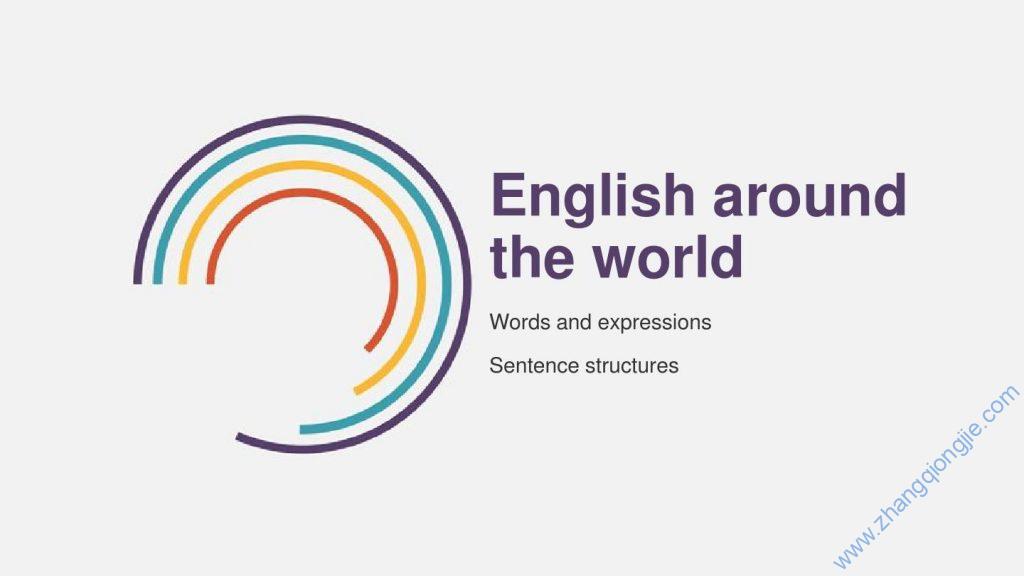关系词包含关系代词、关系代词所有格、关系副词、复合关系代词及准关系代词。任何关系代词均有连接的功能,引导定语从句,与主语连接,并修饰主语中的名词短语或整个句子,详解如下。
一、关系代词
1.关系代词的检查法:
1.关系代词之前应有先行词(即被该关系代词代替的名词、短语或从句)
2.关系代词本身在所引导的定语从句中应作主语或宾语
3.否则关系代词之前应置介词,该介词亦可置于从句句尾
1)代替事物、短语或从句应使用which
This is a book which I like to read. (这是我很喜欢看的书。)
# which作read的宾语
This is a book which is sure to interest you a lot. (这是一本一定会引起你很大兴趣的书。)
# which作主语
This is a book in which I’ve found many errors.
== This is a book which I’ve found many errors in. (这是一本我发现有很多错误的书。)
# which作介词in的宾语
There is hardly anything he doesn’t know, which I really envy. (他几乎无所不知,这真令我羡慕。)
2)代替人则使用who或whom
He is a man who never lies. (他是个从不说谎的人。)
# who作主语
He is a man whom we all respect. (他是个我们都很尊敬的人。)
# whom作respect的宾语
He is a man with whom I enjoy working.
== He is a man whom I enjoy working with. (他是一个我喜欢共事的人。)
# whom作介词with的宾语
3)关系代词who, whom或witch之前若无逗号或介词时,均可用that代替
He is a man who never lies.
== He is a man that never lies.
4) 关系代词作宾语时之前若无逗号或介词,此时该关系代词可予省略
He is a man whom we all respect.
== He is a man that we all respect.
==He is a man we all respect.
2.注意“数量词 + of + 关系代词” 的用法
He has taught many students, two of them have become noted scientists. (×, 两句无连词连接)
补救之道:
1.分号
He has taught many students; two of them have become noted scientists. (他教了许多学生;其中两名已成为了知名的科学家。)
2.独立分词
He has taught many students, two of them having become noted scientists.
3.数量词 + of + 关系代词
He has taught many students, two of whom have become noted scientists.
3. 关系代词与插入语的关系
1.插入语的形态:
1)主语 + 动词:
I think / believe / fell (我认为/相信/觉得)
2)介词短语:
in my view / to my understanding (依我之见/就我所知)
2.插入语在关系代词之后,不影响该关系代词既有的格
1)主格(即主语)
He is a man who never lies.
—>He is a man who I think never lies. (他是个我认为从不说谎的人。)
He is a man who, to my understanding, never lies. (他是个就我所知从不说谎的人。)
2)宾格(即宾语)
He is a man whom we should all respect.
宾格 及物动词
—>He is a man whom I believe we should all respect. (他是个我相信我们皆应尊敬的人。)
二、关系代词所有格
1.关系代词所有格whose的用法:
1.whose有连接词的功能:
He is John, his father is my teacher. (×,两句无连接词连接)
—>He is John; his father is my teacher. (√)
—>He is John, whose father is my teacher. (√) (他是约翰,他的父亲是我的老师。)
2.whose的检查法:
1)之前应有先行词(即被代替的名词)
2)whose之后的名词在whose所引导的定语从句应作主语或宾语
3)否则之前应有介词,而介词亦可置于定语从句句尾。
I know the old man, whose daughter used to be my girlfriend.
主语 不及物动词
(我认识那位老先生,他的女儿曾是我女友。)
The girl whose father I fear is coming today.
宾语 及物动词
(那位他的父亲令我敬畏的女孩子今天要来。)
I love Mary, whose brother I hate to work with, though.
介词
I love Mary, with whose brother I hate to work, though.
介词
(我喜欢玛丽,不过我不喜欢与她弟弟共事。)
3.whose除可替代人以外,亦可替代物:
I like this book, its contents are fascinating. (×, 两句无连接词连接)
—>I like this book, whose contents are fascinating. (√) (我喜欢看这本书,它的内容很精彩。)
I like this book, the contents of it are fascinating. (×, 两句无连接词连接)
—>I like this book, the contents of which are fascinating.
of which the contents are fascinating.
whose contents are fascinating.
三、关系副词
1.关系副词的检查法:
关系副词有四个:why, when, where, how
1.why: 置于the reason 之后(why亦可省略)
I know the reason (for which / why) he is crying.
== I know (the reason / why) he is crying.
(我知道他为何哭的原因。)
2. when: 置于时间名词之后
I was born in 1990, (in which / when) the war just broke out.
(我在1990年出生,当时正发生战争。)
The day (on which / when) he came, it was raining.
(他来的那一天正在下雨。)
注意:when之前若无逗号时,when亦可省略,故上句亦可改写为:
The day he came, it was raining.
3. where: 置于地方名词之后(where不可省略)
Yesterday I went to Suzhou, (in which / where) I was born.
(昨天我到苏州区,那是我出生的地方。)
The small town (in which / where) I met my wife is not far from here.
(我和我妻子相遇的小镇离这里不远。)
4.how: 与the way择一使用,唯两者不能并存
That’s the way in which he handles tings. (√)
That’s the way how he handles things. (×)
—>That’s the way he handles things. (√)
== That’s how he handles things. (那是他处理事情的方法。)
四、复合关系代词
1.复合关系代词what(所……的东西)的检查法:
1.之前不可有先行词(即名词)
2.将what视作the thing(s) which
3.which在所引导的定语从句中应作主语、宾语或be动词的表语。
(What / The thing which) he says is true. (他所说的是事实。)
Tell me (what / the thing which) happened last night. (告诉我昨天晚上发生的事情。)
Hard work has made him (what / the thing that) he is today. (努力使他有今日成就。)
2.符合关系代词whatever(任何……的东西)的检查法:
whatever 与 what 作复合关系代词时,意思相同;唯whatever强调的意味更浓。
1.之前不可有先行词(即名词)
2.将whatever视作anything which
3.which在所引导的定语从句中应作主语、宾语或be动词的表语
(Whatever / Anything which) he says is true. (他所说的任何话都是事实。)
Give him (whatever / anything which) he needs. (他要什么就给什么。)
注意:whatever亦可作副词连接词,等于no matter what(不论什么),引导状语从句,以逗号与主语相隔。
Whatever he says, it must be a lie.
== No matter what he says, it must be a lie. (无论他说什么,那一定是谎言。)
3.复合关系代词whoever(任何……的人)的检查法:
1.之前不可有先行词(即名词)
2.将whoever视作anyone who
3.who在所引导的定语从句中应作主语
Whoever does it shall be punished.
== Anyone who does it shall be punished.
主语 及物动词
I’ll punish (whoever does it / anyone who does it.)
(我会惩罚任何左这件事的人。)
注意:whoever亦可作副词连接词,等于no matter who(不论谁),引导状语从句,以逗号与主句相隔。
Whoever dose it, he shall be punished.
== No matter who does it, he shall be punished. (不论谁做这件事情,他都将受到惩罚。)
4.复合关系代词whomever(任何……的人)的检查法:
1.之前不可有先行词(即名词)
2.将whomever视作anyone whom
3.whom在所引导的定语从句中应作宾语
I trust whomever you trust.
== I trust anyone whom you trust.
宾语 及物动词
(你信任的任何人我都信任。)
5.复合关系代词whichever(同类的任何一个)的检查法:
1.之前不可有先行词(即名词)
2.将whichever视作any one which
3.which在所引导的定语从句中应作主语或宾语。
There are three apples here. You may choose (whichever / any one which) you like. (这儿有三个苹果,你喜欢哪一个就选哪一个 。)
6.whereever的用法
wherever是副词连接词,等于no matter where(不论何处),引导状语从句,以逗号与主句相隔。
Wherever you are, I’ll find you.
== No matter where you are, I’ll find you. (不论你在哪儿,我都会找到你。)
7.whenever的用法
whenever亦是副词连接词,等于no matter when(不论何时),引导状语从句,以逗号与主句相隔。
Whenever you see him, he is studying.
== No matter when you see him, he is studying.
== Each time you see him, he is studying.
== Every time you see him, he is studying. (每次你见到他,他都在念书。)
8.however的用法
1.副词
表“然而”,可置于句首,之后置逗号;或插入居中,两旁置逗号。
He is nice; however, I don’t like him.
== He is nice; I, however, don’t like him.
== He is nice. However, I don’t like him.
== He is nice. I, however, don’t like him. (他很好,不过我不喜欢他。)
2.副词连接词
表“无论如何”,引导状语从句,以逗号与主语相隔。
However nice he may be, I don’t like him.
== No matter how nice he may be, I don’t like him. (不论他有多好,我就是不喜欢他。)
五、准关系代词
1.but可作准关系代词,用于下列句型中:
There is no … who … not … (没有……不……)
There is no … whom … not … == (凡……必……)
There is no … which … not …
== There is no … but …
a.句中有be动词时,保留该be动词。
There is no one in the office who isn’t sick of that lazybones.
== There is no one in the office but is sick of that lazybones. (办公室内无人不讨厌那个懒家伙。)
# lazybones /ˈleɪziboʊnz/ n. 懒人
b.句中有一般助动词(如can, will, should等)时,保留该助动词。
There is nothing which he cannot do.
== There is nothing but he can do. (他什么都会做。)
c.句中有do/does/did时,do/does/did予以删除,再将原形动词还原成应有的人称或时态变化。
There is no one who doesn’t love music.
== There is no one but loves music. (无人不喜欢音乐。)
2.as可作准关系代词,用于下列句型中
such … as … (像这样的……)
the same … as … (和……相同的……)
上列句型中,as之前如有名词时,as可作准关系代词:
a. 将as视作as the + 先行词(即as之前的名词)+ who/whom/which
b.在确定who/whom/which在所引导的定语从句中,who应做主语,whom做宾语,which可作主语或宾语。who及which亦可作be动词之后的表语,但一律以that代替。
1)主语
Such a man as lies isn’t worth our praise.
主语 不及物动词
== Such a man as the man who lies isn’t worth our praise.
主语 不及物动词
(像这样说谎的人不值得我们赞美。)
2)宾语
This is exactly the same car as I bought a month ago.
宾语 及物动词
== This is exactly the same car as the car which I bought a month ago.
宾语 及物动词
(这辆车和我上个月所买的车完全相同。)
3)be动词之后的表语(此时be动词往往予以省略)
Such an honest man as Peter (is) is worth our praise.
表语 be动词
== Such an honest man as the man that (非who) Peter(is)is worth our praise.
(像皮特这样老实的人值得我们赞美。)
注意:
the same … as … (和……相同的……(两个))
the same … that … (同一个……(一个))
I have the same car as he is driving. (我有一辆车,与他正在开的那一辆相同。)
I have the same car that (非which) he is driving. (我有一辆车,就是他正在开的那一辆。)
3.which代替整句时,亦可用as取代which,唯which引导的定语从句只能置于主语之后,而as引导的从句则可置于主句前后。
He is nice, which/as we all know.
== As we all know, he is nice. (我们都知道,他为人不错。)
但: Which we all know, he is nice. (×)
4.than亦可作准关系代词,用于下列句型中
more + 名词 + than …
上列句型中,than之前若有名词时,than可作准关系代词:
a.将than视作than the + 先行词(即than之前的名词)+ who/whom/which
b.再确定who/whom/which在所引导的定语从句中,who应作主语,whom应作宾语,which则可作主语做宾语。who及which亦可作be动词之后的表语,但一律以that代替。
1)主语
I have more money than is needed.
名词 主语 动词
== I have more money than the money which is needed.
主语 动词
(我的钱必须要的还多。)
2)宾语
I have more money than you need.
名词 宾语 及物动词
== I have more money than the money which you need.
宾语 及物动词
(我的钱比你所需要的还多。)
3)be动词之后的表语(此时be动词往往予以省略)
He is a better student than you (are).
== He is a better student than the student that (非who) you are. (他这个学生比你要好。)
 琼杰笔记
琼杰笔记



评论前必须登录!
注册